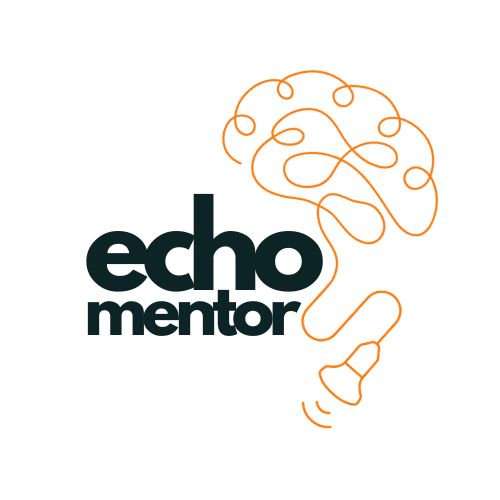The Hidden Weight of Connectivity: How Letting Go Improved My Career
Last week I put down my phone and I
barely picked it up again for five days. I spent those days with my family,
soaking up sunshine and exploring the coral reefs of Roatan, Honduras. I had
arrived tired and worn: ready for a break. It was around day 3, gently rocking
in the ocean waves, watching the sunset from a boat, that a sense of
overwhelming gratitude hit me.
I feel grateful that this career affords me the opportunity to explore the world. I am thankful that because of it, I have a relatively comfortable life and can take care of my family. I am grateful that my work has a life-changing impact on my patients, and that I get to be there for them in some of their most challenging moments but also moments of joy. I’m grateful that my and my team’s work is meaningful, and in some cases, lifesaving. Truthfully, I also feel grateful that I could take the time to reset, revitalize, and to have this reflection because I have a job where I feel empowered to take time away and completely disconnect.
At some point during this trip, I let go of a weight I didn't even realize I was carrying for years. The truth is it hasn't always been this way for me, and to completely unplug was at one point, unfathomable. To do so last week provided me a freedom I never even realized I was missing.
Healthcare is a demanding field: physically, emotionally, and mentally. Many of us wear many hats, whether it be formally or not. Burnout amongst healthcare workers has been studied time and time again and the negative impacts are well documented. We know that in healthcare, burnout has proven adverse effects on patient-provider communication and care quality, it increases the rate of medical errors, can lead to costly turnover and gaps in care, and it contributes to compassion fatigue amongst healthcare workers. Burnout is so problematic in healthcare that most large medical systems have an entire HR branch dedicated to employee wellness. They organize things like guided meditation, bring in motivational speakers to talk about resilience, and they offer mental health resources for employees struggling. Often, a simpler message they deliver is encouraging employees to take time away.
Why is it then that so many of us struggle to actually do this?
I, and I believe most sonographers, entered the field because we truly care about other humans. Our empathy, compassion, and curiosity led us on this path to medicine. Our attention to detail, dependability, methodical analysis, deep sense of responsibility, and intuition led us to ultrasound. Those qualities are some of the traits that make great sonographers. But they’re also some of the traits that can make it hard to let go and completely unplug.
The current landscape of healthcare has many staffing shortages, and sonography is a highly specialized skill. Many of us struggle to even get approved for meaningful time off in the first place. Many more of us struggle with a lack of flexibility in our schedules and use vacation days to cover things like our own medical appointments, important errands, and family obligations. Perhaps it is because of our empathy and dedication that taking time away can leave us with guilt and worry for the coworkers and patients we leave behind, especially if there’s no one readily available to step in to fill our shoes.
The American Academy of Family Physicians has found that 70.4% of clinicians do some work on vacation days off. While I hope that number is lower for sonographers I know many of us, especially those in leadership roles, view off-the-clock contact with work as a reality of working in healthcare. Many medical facilities operate 24/7. Emergencies happen. Colleagues have questions. Communication and updates need to be shared, and clinical schedules are busy so it’s easier to pass news along now, before it’s forgotten. Perhaps it goes the other way too, and we feel called to “check in” with our team even though we’re off, or pull up our email to ensure there’s nothing that needs our urgent attention. Just a quick text to make sure everything’s ok so I can stop worrying and actually relax.
I certainly have been that person.
And yet, it wasn’t until I completely committed myself to temporarily letting go of work completely and shifting my undivided focus to family time, relaxation, and being present did I find myself feeling so reflective and grateful for my career. Living in the moment is liberating. It’s also restorative and revitalizing in a way “connected days off” never were for me. When I returned to the office on Monday I felt joyful. I was excited to engage with my coworkers. I felt more connected to my patients. I had more bandwidth to care. Caring: the reason I entered the field in the first place.
Rest, and true rest, is so necessary to burnout recovery, and we know that this improves our work and the experience of our patients. Simply put, it makes us better caregivers when we care for ourselves.
So, sonographers, medical professionals, healthcare community members: I implore you to please, take real time away. Encourage your colleagues to do the same. Set boundaries. Don’t make exceptions. You can still be a passionate, dedicated medical professional without always being that person and being that person first. We all know the cliché: you can’t fill the cup of someone else if yours is empty. Hold yourself accountable to these boundaries. Together, we can reshape the culture of medicine and do better for ourselves and our patients.
And one final thought—book that
vacation, you probably deserve it!
About the Author


